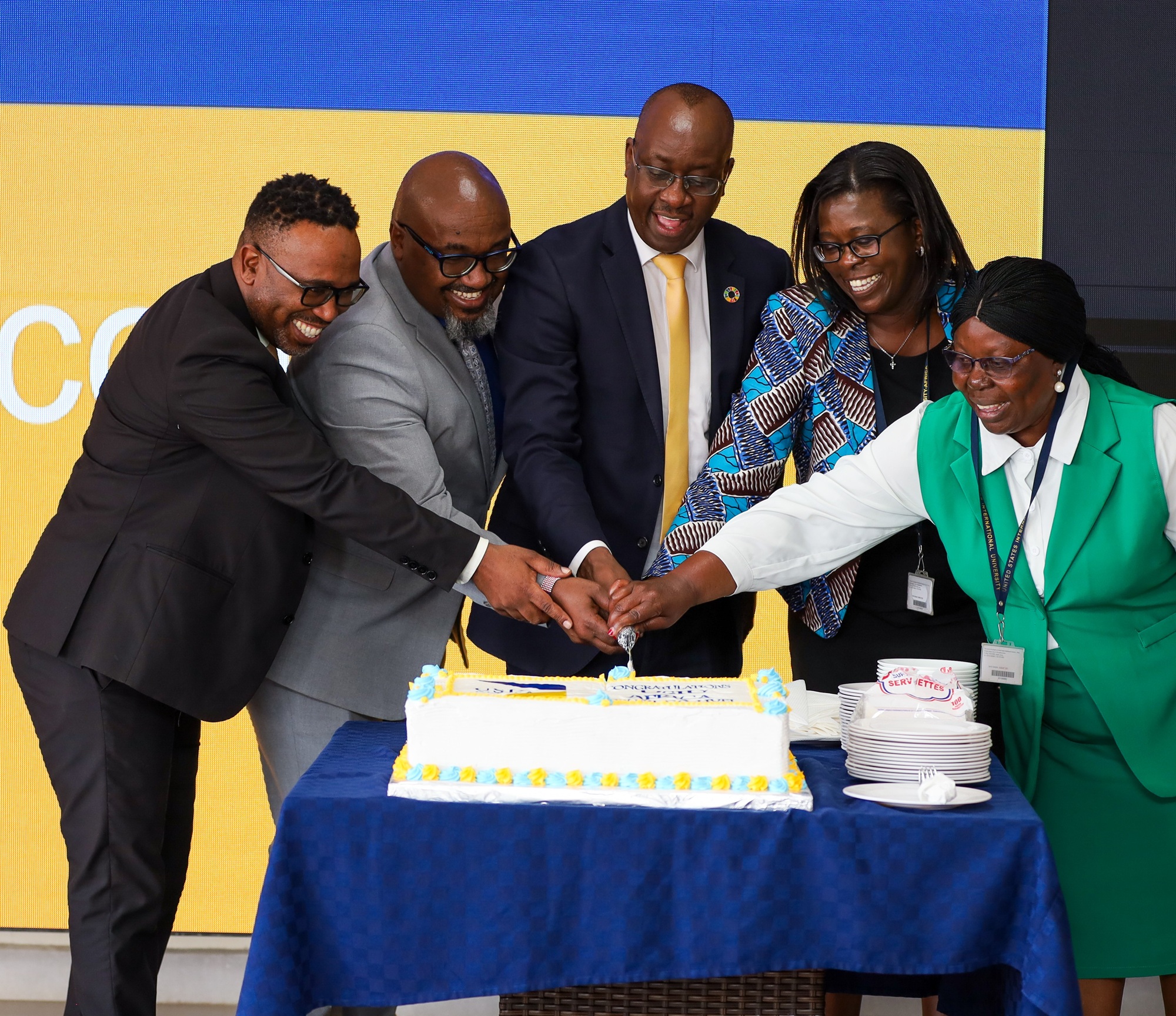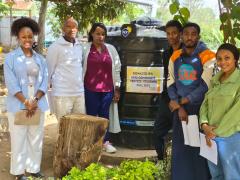The Mastercard Foundation Scholars Program At USIU-Africa Hosts Transformative Entrepreneurship Training For Mastercard Foundation Scholars
By Vincent Juma
The Mastercard Foundation Scholars Program's Transitions Office, in collaboration with United Social Ventures (USV), recently facilitated a transformative entrepreneurship training for Mastercard Foundation Scholars in Cohorts 1 to 3, held from Monday, August 12 to Friday, August 16, 2024. This training aimed to equip the Mastercard Foundation Scholars with essential entrepreneurial skills, fostering their ability to innovate, create, and sustain successful businesses. This aligns with the broader goal of promoting economic self-reliance and community development among young leaders.
United Social Ventures, which was recently onboarded as a partner by the Mastercard Foundation Scholars Program at USIU-Africa to support entrepreneurship training, is renowned for its expertise in youth empowerment and social entrepreneurship. USV's mission centers on supporting young social entrepreneurs in developing innovative solutions to pressing social issues. With a strong focus on mentorship and capacity building, USV has empowered countless youth to launch ventures that drive positive change in their communities.
The partnership between the Mastercard Foundation Scholars Program at USIU-Africa and USV created a unique synergy, equipping the Mastercard Foundation Scholars not only with entrepreneurial skills but also with a strong sense of social responsibility. As Max Weber Asiimwe, the lead facilitator from USV, emphasized during the training, "Entrepreneurship is not just about creating businesses—it's about creating solutions that uplift entire communities. Every venture you start should be driven by a passion to solve a problem that matters to you."
Key topics covered during the training included business idea generation, market research, financial planning, and pitching skills—all critical components for successful entrepreneurship. Dan Wasswa, another facilitator at USV, shared his insights on the importance of resilience in entrepreneurship: "The road to success in entrepreneurship is rarely smooth. It's your ability to adapt, learn from failures, and keep pushing forward that will define your journey."
The training also emphasized social entrepreneurship, encouraging the Mastercard Foundation Scholars to consider the broader social impact of their ventures. This initiative directly addressed Sustainable Development Goal 8 (Decent Work and Economic Growth) by equipping them with the skills to create sustainable economic opportunities. Esteera Enh, a USV facilitator, pointed out, "As entrepreneurs, you are not just building businesses; you are shaping the future of work. Your ventures have the potential to create jobs and bring dignity to those in your community."
By championing entrepreneurship, the training supported the creation of decent jobs and promoted inclusive and sustainable economic growth. It also touched on SDG 4 (Quality Education) by providing the Mastercard Foundation Scholars with practical, real-world learning opportunities that complemented their academic studies.
The training was particularly significant for the Mastercard Foundation Scholars, as it aligned with the Program's mission to develop transformative leaders who will contribute to the socio-economic development of their communities. By the end of the training, participants had developed actionable business plans and gained the confidence to launch or scale their ventures.
USV’s collaboration with the Mastercard Foundation Scholars Program at USIU-Africa continues to unfold through various phases of entrepreneurship training. Following this initial five-day bootcamp, the program will progress through the Academy Phase, where the Mastercard Foundation Scholars will engage in comprehensive training to deepen their understanding of entrepreneurship principles. This will be followed by the Incubation Phase, where hands-on support will be provided as the Mastercard Foundation Scholars develop their projects with guidance from mentors and industry experts. In the Prototyping Phase, teams will create and refine prototypes of their projects, applying the skills and knowledge gained earlier. Finally, the Post-Award Support Phase will offer ongoing resources to help participants launch and sustain their ventures beyond the training program.






